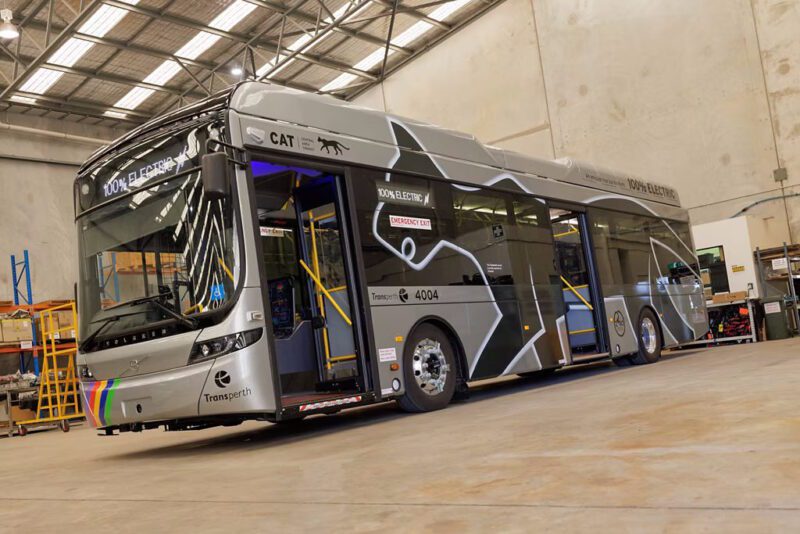The first electric buses to begin operating beyond the Western Australian capital of Perth’s CBD district are now ready to go, with around 90 set to be operating from Transperth’s Malaga depot by the first half of 2026.
Eleven electric buses are now ready to operate, according to the WA government, and will soon be seen servicing Perth’s suburban areas.
This follows an initial rollout of 18 electric buses that have been running on the Perth CBD’s CAT bus routes – estimated to be carrying over 2.5 million passengers each year and saving a combined 720 tonnes of carbon dioxide emissions.
“This is a really exciting moment for public transport in Western Australia, with electric buses rolling out into our broader suburban areas for the first time,” said Rita Saffioti, transport minister for the state.
“We’ve had electric buses operating on the CBD Cat bus routes since September last year, but now people catching buses in the suburbs will be jumping on board too.”
Each electric bus, which is assembled at the local Volgren facility, is capable of travelling up to 300 kilometres on a single charge, saving around 40 tonnes of CO2 each year.
The 11 new electric buses will be operating out of Transperth’s Malaga depot, north of the Perth CBD, which is currently undergoing a $12 million upgrade that will convert it into the state’s largest EV bus charging facility, capable of supporting 110 electric buses.
Upgrades already completed at the depot include solar panels and batteries to provide power to the facility, as well as the delivery of new charging infrastructure.
Plans are also underway for upgrades at the Karrinyup and Claisebrook bus depots and a new EV bus depot in the north-east suburb of Bayswater. These upgrades will facilitate the rollout of more electric buses in and around Perth, with the first electric buses expected to be operating out of the Karrinyup depot expected by early next year.
The news comes less than two months after the last passenger services diesel bus to be manufactured in Western Australia rolled out of the Volgren facility.
Part of the re-elected Labor government’s promise to phase out diesel bus production and build only fully electric buses (and ferries), premier Roger Cook announced the completion of the last diesel bus in late May.
“We’ve now delivered on our election commitment to stop the production of diesel buses, and that means the community will start to see more and more electric buses operating on the network,” added Saffioti.
“Not only are electric buses cleaner and better for the environment, they’re also cheaper to operate in the long term, which means better value for money for WA taxpayers.”
Joshua S. Hill is a Melbourne-based journalist who has been writing about climate change, clean technology, and electric vehicles for over 15 years. He has been reporting on electric vehicles and clean technologies for Renew Economy and The Driven since 2012. His preferred mode of transport is his feet.

